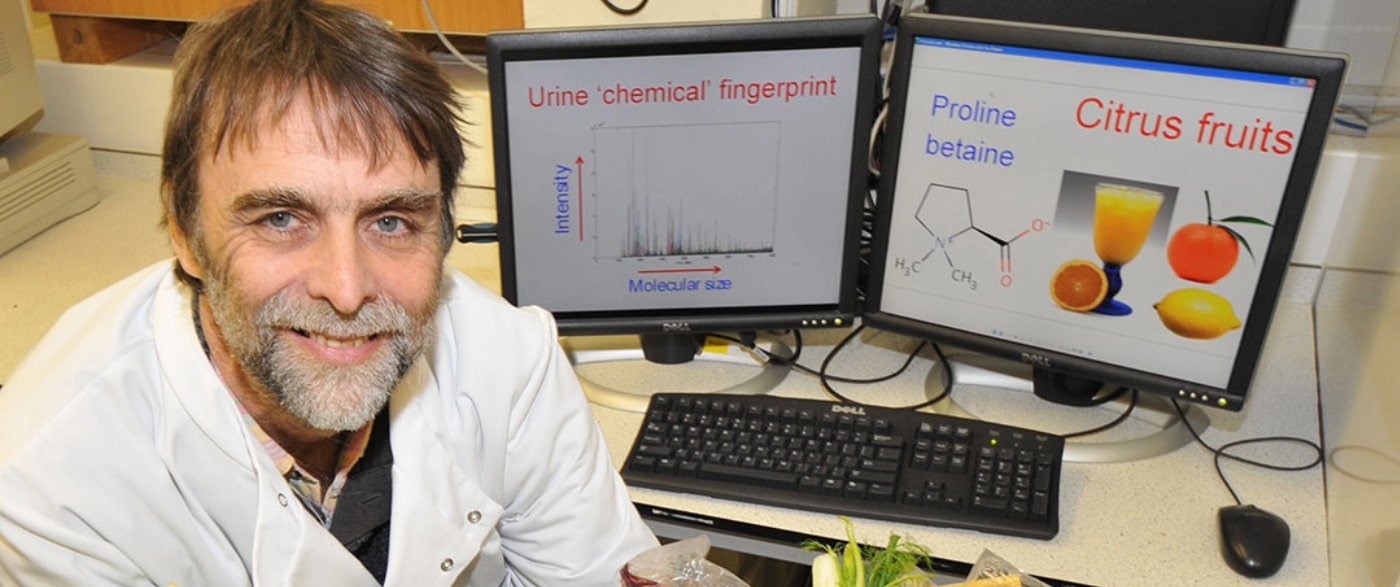Monitoring Diet Through Biomarker Technology

Researchers
Professor John Draper
Dr Manfred Beckmann
Dr Amanda Lloyd
Dr Tom Wilson
The Overview
Investigating the relationship between diet and health is complicated. Self-reported dietary intake data often contains inaccurate information as a result of misreporting or bias. Research undertaken by the Department of Life Sciences (DLS) at Aberystwyth University (AU) has led to the development of a technology platform that analyses urine chemistry, objectively reporting dietary exposure. This provides accurate tools to show, for example that public health initiatives can positively impact eating behaviour; to provide protocols for nutritional assessment in clinical trials; to support health claims associated with foods and to provide a method for detecting malnutrition in vulnerable members of society.
The Research
People often inaccurately record their own diets. Inaccurate food intake data skews the conclusions of many clinical trials and national surveys in which dietary intake and nutritional status are important. The measurement of food-derived metabolites in biofluids provides an alternative approach.
Our research team were the first to describe an experimental protocol for the discovery of intake biomarkers for several foods of high public health significance. The collaborative Medical Research Council Programme Grant (MAIN) to develop urine biomarker technology to investigate dietary intake in free-living populations produced a study protocol based on complex food interventions that mimics exposure to the whole of a typical UK diet. For the first time this allowed the validation of food intake biomarker specificity in populations and discovered and/or validated biomarker leads for a wide range of foods. The dietary intake biomarker technology was validated in a range of clinical trials and provided the first comprehensive biomarker panel to measure habitual diet.
Universal deployment of food intake biomarker technology depends on appropriate and affordable methods to obtain urine samples. The team were able to demonstrate that small spot urine samples collected at specific times were suitable replacements and highly acceptable to study participants. This led to bespoke commercial urine collection kits being developed and manufactured.
The Impact
Impact on Commerce and Economy
Impact on Clinical Trial Design
Impact on National and International Policy
Impact on Public Awareness
Our research team were the first to describe an experimental protocol for the discovery of intake biomarkers for several foods of high public health significance.

Get in touch
As a University, we’re always keen to share our knowledge and expertise more widely for the benefit of society. If you’d like to find out more or explore how you can collaborate with our researchers, get in touch with our dedicated team of staff in the Department of Research, Business and Innovation. We’d love to hear from you. Just drop an e-mail to:
Research Impact Case Studies | Research Theme: Health
